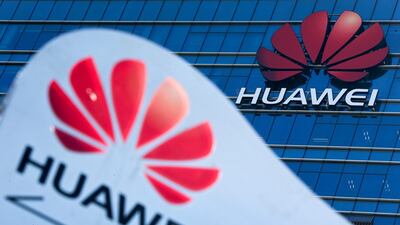Google has suspended any business with Huawei requiring the transfer of hardware, software and technical services, except those publicly available through open-source licensing, a source said on Sunday.
The move is a blow to the Chinese technology company, which the US government has sought to blacklist around the world.
The decision is expected to hobble Huawei’s smartphone business outside China as the tech giant will immediately lose access to updates to Google’s Android operating system.
The next version of its Android smartphones will also lose access to popular services including the Google Play Store and Gmail and YouTube apps.
“Huawei will only be able to use the public version of Android and will not be able to get access to proprietary apps and services from Google,” the source said.
The Trump administration on Thursday added Huawei to a trade blacklist, immediately enacting restrictions that will make it extremely difficult for the company to do business with US companies.
On Friday, the US Commerce Department said it was considering scaling back restrictions on Huawei to “prevent the interruption of existing network operations and equipment".
It was not immediately clear on Sunday whether Huawei’s access to mobile software would be affected.
The extent to which Huawei will be hurt by the US government’s blacklist is not yet known as its global supply chain assesses the impact.
Chip experts have questioned Huawei’s ability to continue to operate without US help.
Details of the services affected by the suspension were still being discussed Google, the source said.
Huawei lawyers are also studying the effects of the blacklist, a spokesman for the company said on Friday.
The tech company will still have access to Android Open Source Project, which is available for free to anyone who wishes to use it. There are about 2.5 billion active Android devices worldwide, Google estimates.
Huawei says it has spent the past few years preparing a contingency plan by developing its own technology in case it is blocked from using Android.
Some of this technology is already being used in products sold in China, the company has said.
Eric Xu, rotating chairman of Huawei, in March struck a defiant note in anticipation of retaliatory actions by US companies.
“No matter what happens, the Android Community does not have any legal right to block any company from accessing its open-source licence,” Mr Xu said.
Popular Google apps such as Gmail, YouTube and the Chrome browser that are available through Google’s Play Store will disappear from future Huawei handsets because those services require a commercial agreement with Google.
But users of existing Huawei devices who have access to the Google Play Store will still be able to download app updates provided.
Apps such as Gmail are updated through the store, unlike operating system updates which are typically handled by phone makers and telecoms operators, which the blacklist could affect, the source said.
The effect is expected to be minimal in the Chinese market. Most Google mobile apps are banned in China, where alternatives are offered by domestic competitors such as Tencent and Baidu.
Huawei’s European business, its second-biggest market, could be hit as it licences these services from Google in Europe.
“Having those apps is critical for smartphone makers to stay competitive in regions like Europe,” said Geoff Blaber, vice president of research at CCS Insight.

